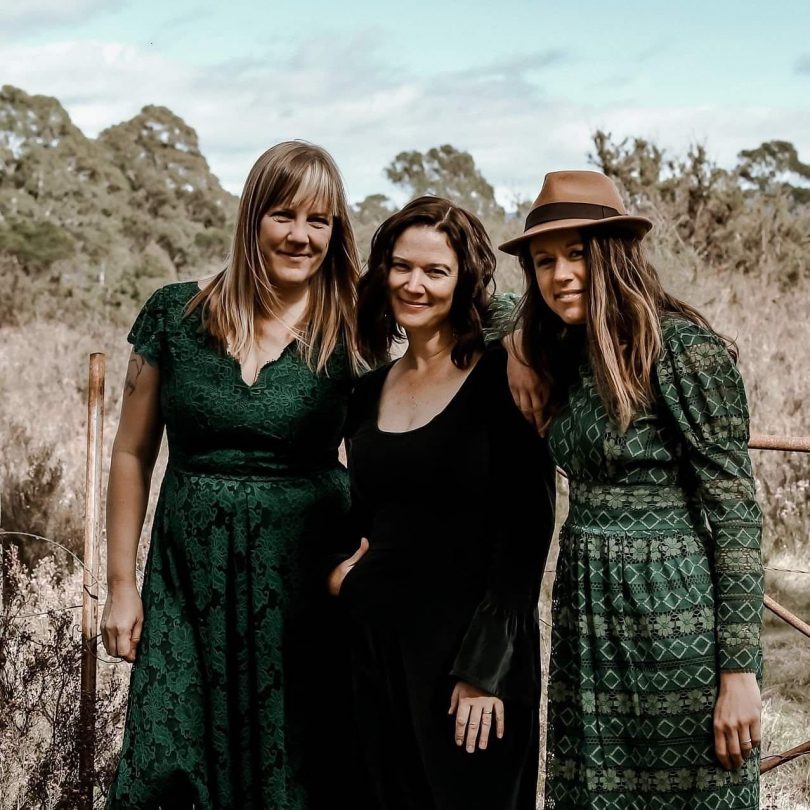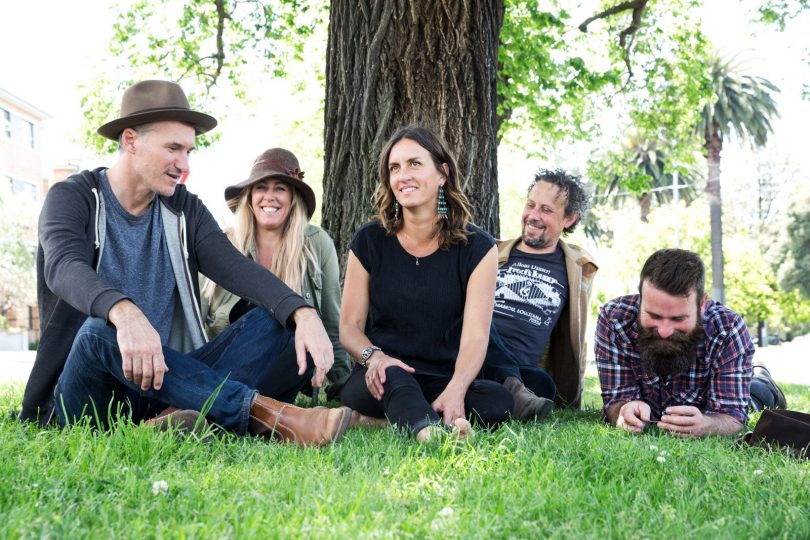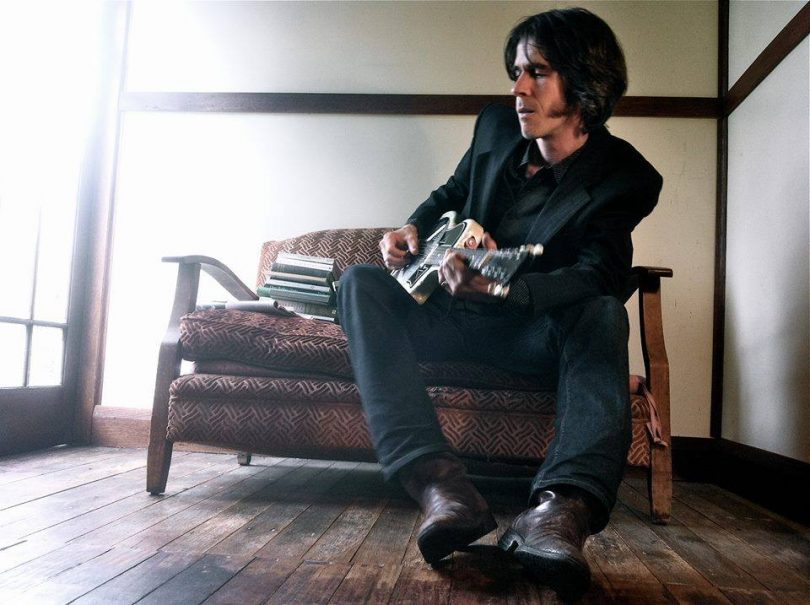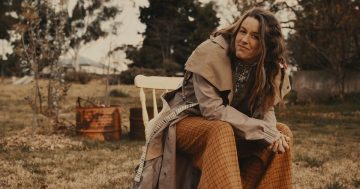
Candelo trio The New Graces comprises (left to right) Melanie Horsnell, Kate Burke and Robyn Martin. Photo: Supplied.
It sure is a tough time to be a local independent artist.
David Ross Macdonald, Melanie Horsnell and Heath Cullen are full-time musicians and songwriters based in Candelo, a town in the Bega Valley in southeast NSW, who are facing a very different year to what they were expecting due to COVID-19 restrictions.
International and national tours have disappeared in a flash, album releases moved online and the possibility of earning income playing live gigs has diminished for the foreseeable future.
All three artists report turning to gardening to process these changes and prepare for the future, saying it doesn’t feel like a creative time at the moment.
“Like most people in the performing arts, my income evaporated overnight,” says Heath, adding in a semi-serious tone: “I don’t like to starve but I know how to. The future is leafy greens!”
Melanie, who is also a member of local trio The New Graces, says musicians know how to “ride the ups and downs” and “get by on very little” but these artists have not experienced anything like the restrictions they currently face in their careers.
David is midway through a bread delivery for Candelo micro-bakery Wheatley Lane Bread when I call. It is his first day job since 1998.
He was supposed to be flying to the US on Monday to begin a tour with The Waifs, who he has drummed for on and off for a decade.

David Ross Macdonald, far left, with longstanding Aussie favourite band The Waifs. Photo: Supplied.
“Delivering bread is the only legal way I can currently road trip. Plus, it smells better than a tour van,” he jokes.
Melanie has spent the last few weeks in the garden, quietly adapting to the loss of several “dream gigs” and an aborted European tour.
“I really like performing, but when you perform you want to be in a solid place. At first, I rushed getting online and tried to make some money, but then I just kind of went into a hole. So I spent a few weeks in the garden and now I feel ready to get out there again.”
One of the ways Melanie is bringing us all some joy to lonely weekends in isolation is her Date Nights with Melanie Horsnell, where you can request songs live through her Facebook page.
Both Melanie and David speak about the continuous drive that being a musician requires, which is currently being tested.
“What has to drive us in the solo world is a degree of ego,” says David. “Maybe it’s being older, too, but that flame doesn’t burn as brightly anymore. I think this [COVID-19] is a chance for us to not always be searching for that next gig, and develop more nuance in our music.”
Heath’s first new album in five years, “Springtime in the Heart“, which was recorded in Los Angeles in 2019 with Grammy-winning producer Joe Henry, is due to be released next week, COVID-19 or not.

Candelo musician Heath Cullen is releasing his new album, “Springtime in the Heart”, next week. Photo: Supplied.
“I’ve been sitting on the thing for a while and it’s still a big deal to let it out into the world,” he says. “Releasing an album during COVID-19 is just another part of this grand experiment.”
Heath was one of many locals in the region who had fire licking at his back door this past summer and he says the financial uncertainty of the bushfire period, followed by COVID-19 restrictions, means local artists have less of a buffer than usual.
“The government response has been generous, but there’s still going to be people who fall through the cracks and I think I’m one of them,” says Heath. “I’ve run my own label for years and supported myself, but I’m not a small business. And I don’t have a job to be eligible for the JobKeeper payment.”
His answer has been to set up Patreon, where people can subscribe to his music channel and support his continued work.
The future of music, like most things at the moment, is unclear but all three musicians are hopeful that positive change is on the horizon.
“I often think about the carbon faceplant that a big touring band has and I think it’s all going to be different after COVID-19,” says David. “I think we all know we shouldn’t go back to how it was.”
Throughout April, David is offering his solo album, “Thorns To Sleep”, in a bundle of Vinyl + CD for only $30, with 50 per cent of all proceeds to be donated to the Asylum Seeker Resource Centre.








